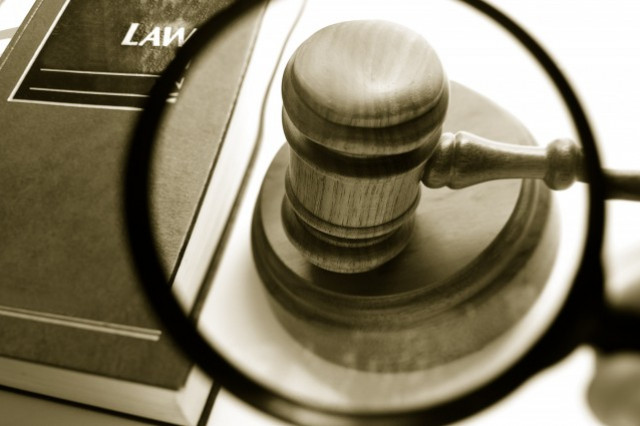Political parties are the most frequent way of organizing political representation in democracies. It is in the interest of society that the party system be agile and efficient; that the field of play is level; that all political options have the opportunity to participate, so long as they are supported by the general public; that democratic values and processes, freedom of expression and respect for the rules of the political game are promoted, and that the resources that society provides are used sensibly.

Similar to all organisations, parties need many economic resources, given their costs of structure and functioning and, above all, of campaigns. These resources usually come from the public budget or from private contributions; membership fees are quite inadequate, and debt can be useful in the short term, but quite costly in the long term and the short-termism of many political formations is well known.
Public funding
Public funding is justified by the social benefit of the existence of parties, candidates and programmes: they are for the public good, which has to be financed among everyone. However, this gives rise to several problems.
One problem is the determination of the amount of funds allocated to parties in public budgets. If it is insufficient, it can hinder the exercise of political rights, especially of freedom of expression. But it is more likely to be socially excessive because the decision on the amount of these funds is borne by its beneficiaries, through elected legislators and elected civil servants: conflict of interest is served.
Conversely, if it is insufficient for the needs of the parties. Expenses have been increased in response to the development of bureaucratic structures, extensive and professionalized, by the frequency of the elections and by the increasing costs of new media and the need to publish information. Therefore the performance of those expenses is decreasing, because the success of a candidate's campaign depends on the expense of their opponents.
Similar to all organisations, parties need many economic resources, given their costs of structure and functioning and, above all, of campaigns
Because of this, the amount of funds that a party can devote to its ordinary operations or to its campaigns is often limited. But it should also be borne in mind that new entrants to the competition need to have large sums to counterbalance the advantage of those already in power and organized groups.
Another problem is how to distribute public funds between parties. The criterion used usually looks at the past: the votes obtained or the number of members of parliament. Again, this favours those already in place, and lends itself to party-to-party collusion to maximize the incomes of large political organisations or those forming the governing coalition, to the detriment of minority and newcomers.
Theoretically, generous public funding should reduce the risk of party corruption. But it can also damage their independence by integrating them into the machinery of the State; fostering their conversion into self-interested bureaucracies in their continuity, until they end up occupying more and more spaces of public life and away from the general public, whose financing they do not need and to whom they are not accountable.
Private financing
The deficit of public funds is supplemented by private funding: membership fees, voluntary work, income earned through festivities, raffles or merchandising, or illegal income, such as the development of companies that cover up fictitious donations for reports, consultation, and so on.
And, above all, private donations, which are part of the freedom of the general public to support the ideas they want with their own money, within the law. But they can cover up the unfair exchange of favours or benefits, involving the donor, the candidate (who is expected to grant favours), the party and its leaders, potential intermediaries (including foundations, youth clubs, and so on), and of course, companies harmed by the concession of the favour and the general public who suffer the consequences of corruption.
Ultimately, questions about the advantages of public or private funding become a debate between the primacy of freedom of expression model and the superiority of equal opportunities
The problem is that the parties can either act for the benefit of those who finance them, or for the common good, but not both. Anyway, this risk, which does exist, has to be explained: the mere existence of a benefit for the donor does not make the donation immoral or illegal. What characterizes corruption, from the point of view of the donor, is the misuse of a position, now or in the future. And, from the point of view of the donor, the collaboration in this misuse, for their own benefit or for a third party.
Funding through private donations may make it more difficult to achieve a "level playing field" where all the general public can equally exercise their rights to be heard; it can increase the parties' dependence on interest groups, and may make them hostages of the system, in that the exercise of their rights may be contingent on their participation in party financing. Nor does it eliminate the bureaucratization of parties, nor being distanced from the general public, nor their lack of transparency, although it is possible that these defects occur in a smaller proportion when private financing predominates, because the political machinery of the parties will be more sensitive to the requests from donors, although these do not necessarily coincide with the common good of the general public.
In any case, competition between donors can reduce the effectiveness of their pressure: because the amount of donations will have to be greater as more interest groups seek the support of a party; because the efficiency of their contributions will decrease the greater the number of interests represented, and the competition among parties, which make opposing groups of interests probably support different political formations.
Ultimately, questions about the advantages of public or private funding become a debate between the primacy of freedom of expression model and the superiority of equal opportunities. The former defends the freedom of donors, relying on competition between them to maintain equal opportunities. The latter prefers direct regulation of this equality, although this may create uneven terrain in other aspects.

The solutions
The problems mentioned are more or less common to all democratic countries. And the proposed solutions are also. There are no panaceas; each measure has arguments for and against, and probably its opportunity changes over time, as the agents learn and change their behaviour accordingly. Here are some of these solutions:
- Limits to ordinary party spending, reduction of the duration of the campaigns and limit to the expenses that they can incur
- Prohibition of anonymous donations, except for quite small ones, and limitation of the amount of the major ones and/or the condition of the donors
- Requirements for accurate posting by the donor and its publication (that is to say, in its annual report)
- Transparency and publicity of the accounts of political parties, candidates and campaigns
- Control of party accounts by the Ombudsman
- Voluntary collaboration of companies, through policies of informing about funding of parties and foundations, gifts and attentions, and so on
- Regulation of lobbies, so that their actions are transparent and their means legitimate
- Hardening of penalties for corruption. They tend to be of limited effectiveness, among other reasons, because it is not easy to prove such crimes. Persecution of corruption through indirect channels (falsification of invoices, breach of accounting obligations, money laundering, conflicts of interest, and so on)
Public opinion on corruption in party financing is likely to be more benevolent than that of private corruption. But perhaps this opinion does not bear a rational analysis of its effects, also because the corrupt financing of parties is often accompanied by the personal enrichment of politicians or intermediaries. Corruption is not an occasional disease, rather a disease with many ramifications.










